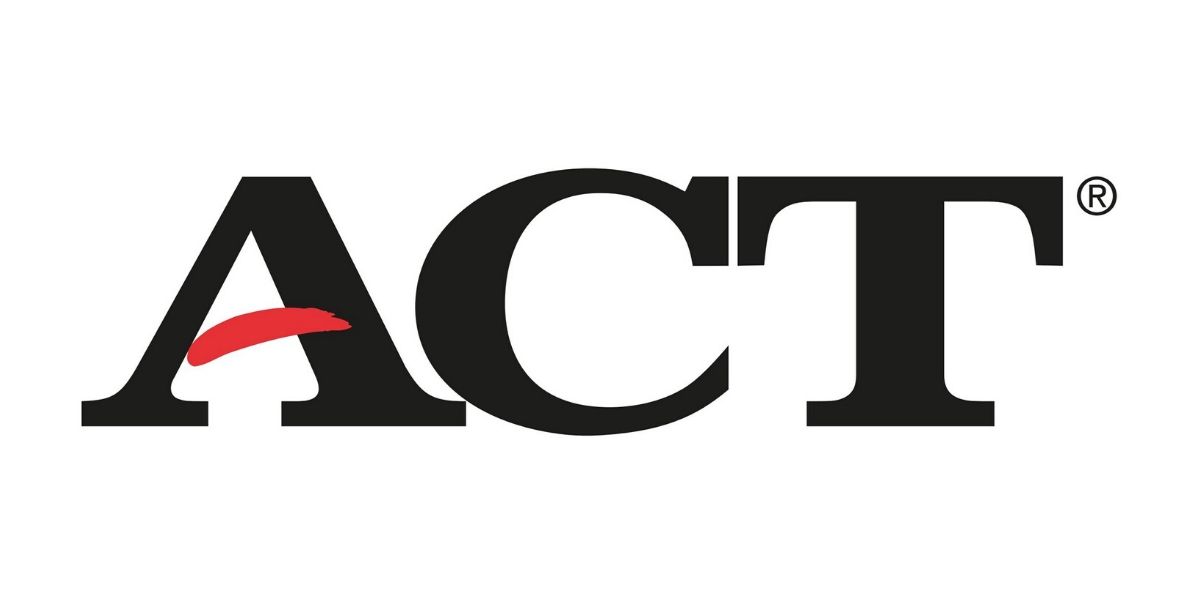25 Helpful ACT Test Tips In 5 Minutes
Everybody loves lists. Everybody loves tips. If you’re thinking about taking the ACT but have no idea how to start preparing for it…then we’ve got you covered here with our own ACT test tips.
Need a place to start preparing for the ACT? Here then are 25 fast and easy ACT test tips to get your prep started.
Learn how to prepare for standardized tests with our year-round SAT prep and ACT prep courses today.
[act_one]

ACT Science Section Hacks
Know Passage Types And Structure
The first step in cracking the Science section is knowing each tested passage type.
The ACT Science passages break down into three different types:
- Research Summary – Presented a series of experiments
- Data Representation – Presented with information about a specific topic
- Conflicting Viewpoints – Presented multiple theories about a single topic
Mark Up Passages
Actively take notes in your test booklet.
Notate the information you need inside the booklet; you won’t be penalized for it. Examples include:
- Underlining keywords
- Circling sentences
- Writing down notes in the booklet itself
All of this is fine because your completed Scantron sheet is what matters.
Work On Pacing
Get your timing down well in advance.
You’re only allotted 35 minutes to complete the Science section. That pace breaks down to approximately 5 minutes per passage to answer those corresponding 5-8 questions.
Start working on your pace at least a month in advance. Start tackling 5 passages with a 7-minute time limit for answering.
Go back and check your accuracy afterward. Then work on shaving down your time to 5 minutes per passage.
[act_two]
Practice Graph Skills
Work on your graph interpretation ahead of time.
Data representation, in the form of graphs, charts, and other visual aids, are huge on the test.
That means you need to interpret data from these aids and draw conclusions. Use practice tests with realistic examples and look over scientific publications.
Work on your data interpretation by glancing over a graph and trying to determine trends quickly. Double-check the article to see if your interpretations are correct.
Refer Back To Passages
Don’t memorize everything on the first read.
You won’t remember everything when reading the passages first-time out. Instead:
- Read the passages to absorb main points and familiarize yourself with data
- Refer back to the passage for specific information when answering a question
Don’t be afraid to circle or underline the main points in each passage. It’ll be easier to locate that information quickly and answer from there.
ACT Reading Section Hacks
Read What’s Presented To You
Don’t look past what’s in front of you.
You will deal with four different passage selections:
- Prose Fiction
- Social Studies
- Humanities
- Natural Science
Everything you need to answer the questions is within the passages already. That’s the point of this entire section – to test your ability to read presented information and derive answers from interpretation. Don’t worry about not knowing the context these passages are derived from beforehand.
Use Process Of Elimination
Cross out what you obviously know is incorrect.
Each ACT Reading question presents you with four answer choices. Only one is correct. That means you can immediately start crossing out choices, instead of trying to guess which one is correct.
Find the flaw in each choice. Sometimes a single word can throw the entire choice off, if it does then it’s likely the wrong answer.
Skim Passages
Skim the passages for information.
The Reading test is rigorously timed. To give yourself extra answering time, consider skimming. Here’s how:
- Read the First and Last Paragraphs first
- Read the Topic Sentence of each body paragraph
Once done, go back and answer the line-cited questions. Go back and answer the remaining general questions.
Read Passages Out Of Order
Answer your best passages first, then come back for your weaker ones.
As you work through ACT practice tests, you’ll start to notice which passage types are easier or harder. Once you have some practice tests completed, go back and rank the passage types from easiest to hardest.
The idea is to do the ones that you can ace fast, in order to leave additional time for the trickier ones.
Be sure to pay close attention to your Scantron sheet and question booklet, in order to make sure you’re answering the questions with the correct Scantron choices.
Familiarize Yourself With Structure
Start off by knowing how the Reading section is put together.
The ACT Reading section is a 35-minute test that starts immediately after one 15-minute break.
The section is comprised of:
- Four reading passages
- Ten questions per passage
Each question has four possible answer choices available. Regarding the sections, they are presented in the same order:
- Prose Fiction
- Social Studies
- Humanities
- Natural Sciences
ACT Writing Section Tips
Avoid Run-ons And Fragments
Recognize long fragments or run-on sentences.
A complete sentence has, at least, one primary clause, consisting of a subject and corresponding predicate, with correct punctuation.
A complete sentence can contain multiples clauses, as long as they are all connected by correct punctuation. If a sentence lacks a primary clause, then it’s a fragment.
A run-on sentence contains multiple, complete thoughts that are incorrectly connected by punctuation. Sentence length alone doesn’t signify if a sentence is correctly formed.
Look for subjects and predicates, and make sure that multiple clauses are correctly connected by commas or semicolons.
Don’t Place Commas Before Or After Prepositions
A known ACT English trick is placing commas before prepositions.
On the test, it is always wrong to place a comma after a preposition. It is also rare to insert before a preposition too. The one exception is when a preposition introduces a non-restrictive clause.
This situation is typically rare, but it happens enough to make knowing the rule important. If you see a comma directly before or after a preposition, then something is up.
Short Word Counts Are Important
Shorter sentences are usually your best bet for the right answer
The shortest yet grammatically correct answer choice that communicates all pertinent information is correct. Answer choices that unnecessarily add words or phrases that don’t communicate helpful information are wrong.
Subject-Verb Agreement Basics
The ACT English section often separates verbs and subjects in sentences.
Always be able to identify a sentence’s subject and check that the verb form correctly matches it. If the tenses do not agree, then discard them immediately.
If collective nouns are used, like “group”, “committee”, “crowd”, etc., and the accompanying verb is not singular, then discard those choices too.
Avoid Comma Splices
Comma splices are commonplace but incorrect.
Comma splices occur when two complete, independent thoughts are separated by a comma. Run-on sentences are the most common example.
When using a comma, make sure that both thoughts cannot exist by themselves entirely. If they can exist independently, then you need to adjust your punctuation. Normally, a semicolon fixes the problem.
ACT Essay Section Tips
Fill Up Three To Four Exam Booklet Pages
Essays less than three pages will lose points, and those with four pages score the highest.
Graders have little time to score your Essay. Instead, they rely on superficial criteria to assign you a score. One criterion is the length. Graders assume that students who wrote longer Essays had more to say and wrote better arguments.
Make sure you write clearly, even if you have to write fast to fill all four pages. If graders can’t read your writing, they will immediately dock you points.
Memorize The Prompt Beforehand
The prompt will always be the same for every Essay; if you already know it, you can skip reading it.
Skipping the prompt will save you time that can go into outlining or writing your Essay. If you memorize the prompt’s requirements, you’ll be less likely to forget any required information for the final essay.
Use Elevated Vocabulary
Using two to three elevated vocabulary words per paragraph.
Because graders only have a few minutes to review your Essay, one criterion they use is your use of elevated vocabulary.
Show off as much as you can, and use at least three to four elevated vocabulary words per paragraph. Using any less than three to four words raises the chance that the graders won’t notice any of them.
Write Five Full Paragraphs
Your essay needs to have five paragraphs—an introduction, three body paragraphs, and a conclusion.
Make sure you have all three sections covered, even if you have to shorten one or two body paragraphs to fit in the introduction and conclusion. They’ll be looking to see that you’ve written those five full paragraphs.
Ideally, if you’ve outlined ahead of time and kept your writing on track, you’ll wrap everything up without rushing.
Use Transition Words Between Ideas And Paragraphs
Know your conjunctions—words and phrases that describe the relationships between words—and use them throughout your Essay.
Your Essay needs to have seamless transitions between ideas and paragraphs. You shouldn’t move abruptly from one idea to another without including an appropriate transition.
Effective transitions are one of the basic elements the graders will examine, so use your conjunctions to clearly connect ideas together.
ACT Math Section Tips
Memorize Equations & Formulas
Have important equations and formulas.
Despite having a reference list on the Math test’s first page, you should have all the important equations and formulas—the equation of a line, the quadratic equation, the equation of a circle, the Pythagorean theorem, SOH CAH TOA, et cetera—memorized.
Having these things down pat will leave you feeling more confident, and prevent you from wasting time flipping back and forth to the first page of the test.
Drill these equations and formulas until you know them by heart.
Write Out Your Problem-Solving Steps
Write out all the steps as you work toward the answers.
Writing out all your problem-solving steps will prevent you from making simple mistakes.
Common mistakes include:
- Entering the wrong number into your calculator
- Giving the answer for x when you’ve been asked for 2x
Using pencil and paper leaves steps for you to check over, should you finish the test early and have time to review your answers.
Skip Problems You Can’t Solve Fast
If you haven’t cracked a problem after 10 seconds, circle it, and move on.
If you’re stuck on a tricky problem and aren’t sure of the process to break it down fast, then circle it and move on.
Fixating on a particularly difficult problem wastes time and can provoke anxiety. Work through all the problems you can correctly solve fast, and then circle back to the remaining difficult questions.
Plug-In Answer Choices
Try inserting answer choices back into the problem to see if one of them works.
This trick doesn’t always work, but if it does then your question is solved. Make sure to plug in all of the answer choices, to make sure you found the right one. Don’t use this as your first tactic though, because it can be very time-consuming.
Don’t Be Intimidated
Don’t worry about thinking you don’t know enough advanced Math concepts to pass the test.
The most advanced Math concepts you’ll face are some simple trigonometry problems. If you’re already taking Precalculus or other higher-level Math classes, then you likely already have enough exposure to ACT Math problem concepts.
If you haven’t learned trigonometry yet, don’t worry—none of the tested concepts are too difficult to pick up on your own time.
[act_three]
For more test strategy, college admissions, and scholarship application tips sign up for our FREE class happening right now!
ACT Test Tips FAQ
What’s an important ACT Science section tip that I should use?
Work on your graph interpretation ahead of time. Data representation, in the form of graphs, charts, and other visual aids, are huge on the test. That means you need to interpret data from these aids and draw conclusions. Use practice tests with realistic examples and look over scientific publications. Work on your data interpretation by glancing over a graph and trying to determine trends quickly. Double-check the article to see if your interpretations are correct.
What’s a tip I can use to finish the ACT Reading section faster?
Answer your best passages first, then come back for your weaker ones. As you work through ACT practice tests, you’ll start to notice which passage types are easier or harder. Once you have some practice tests completed, go back and rank the passage types from easiest to hardest. The idea is to do the ones that you can ace fast, in order to leave additional time for the trickier ones. Be sure to pay close attention to your Scantron sheet and question booklet, in order to make sure you’re answering the questions with the correct Scantron choices.
What’s a hack I can use for the ACT Writing section?
Shorter sentences are usually your best bet for the right answer. The shortest yet grammatically correct answer choice that communicates all pertinent information is correct. Answer choices that unnecessarily add words or phrases that don’t communicate helpful information are wrong.
What’s a surefire way to get a good ACT Essay score?
Fill Up Three To Four Exam Booklet Pages. Essays less than three pages will lose points, and those with four pages score the highest. Graders have little time to score your Essay. Instead, they rely on superficial criteria to assign you a score. One criterion is length. Graders assume that students who wrote longer Essays had more to say and wrote better arguments. Make sure you write clearly, even if you have to write fast to fill all four pages. If graders can’t read your writing, they will immediately dock you points.
Written by Todd Marcus
More from Todd Marcus

ACT Reading Passage Types | What To Expect
Be ready for the ACT Reading section by knowing the kinds of things you'll be reading. Here are the ACT…

Taking The ACT Junior Year
If you're ambitious and want to give yourself plenty of time for score improvement, then consider taking the ACT junior…

ACT 2020 Score Release Dates
Here then are the ACT 2020 score release dates to plan around, as well as, the different kinds of available…